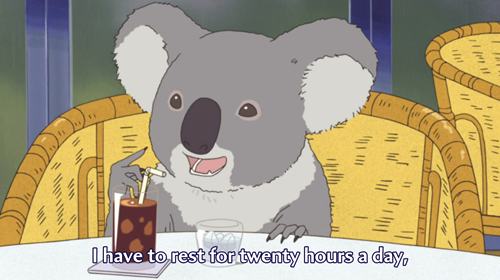Not all trans people are feminists, just as not all women are feminists. Trans people, much like everyone else, have a wide variety of beliefs about gender, ranging from radically feminist to deeply conservative. The theories we use should rightly be discussed, questioned and put through a rigorous feminist critique.
But what is not in error is the underlying fact of our experience and existence: we are real. This means that equally, feminists are ethically obliged to take the genuine nature of, and oppression of, trans people into account in their theories.
The win-win result of this act of mutual respect – of trans people wholeheartedly supporting feminism, and feminists wholeheartedly supporting trans people, is better, more developed, more nuanced thinking about gender and sex, and smarter activism.
And it really is not that difficult to do. Here are a few suggested ways forward for those of us who are more radically inclined.
![[image: a person with a beard, wearing a dress, carrying a sign that says "fuck gender roles"]](https://feministchallengingtransphobia.files.wordpress.com/2015/04/fuck-gender-roles.jpg?w=625)
1. Let go of simplistic, clumsy either/or theories about nature/nurture
Hopefully, we are all now way beyond a child’s colouring-in picture of the gender argument; the idea that “if gender is not 100% socially constructed, then it must be 100% biological” (or vice versa) lags behind the important trend within the scientific community to favour neuroconstructivism – the idea that nature and nurture interact with each other in complex and at times unpredictable ways; “nature v nurture” arguments are fundamentally out of date.
2. Understand that assigning sex is an aspect of gender oppression
It is absurd to believe that picking a baby up, looking at its genitalia, and then assigning it a legal and social status, and a set of pronouns to be used for life, is a biological process. When we say “sex” is socially constructed this is what we mean; the process of sex assignment is a human-made process not a biological one – we made up the words man and woman and sex, we invented birth certificates, we manufactured the need for signs on toilet doors – none of these things is biological.
Many believe this artificial, dividing, classification system was designed to manufacture a subservient class (women) and that it oppresses trans and intersex people in the process. In other words, sex assignment is an aspect of gender oppression.
3. Acknowledge we are not “opposites”
Men and women are not fundamentally different from one another – they do not have essentially different abilities and traits. Gender differences, including traits such as male violence and female passivity, are largely if not entirely socially constructed. Most importantly, social conditioning around gender is not uniform – we cannot predict the behavioural/sociological outcomes for any individual human, despite society’s efforts to condition us.
There are no behavioural traits that belong exclusively to men and are not found in women, or vice versa, whether socially indoctrinated or biologically innate. Human beings simply cannot be sifted neatly into two clear, non-overlapping categories based on any gender-related difference.
4. Affirm we are not our reproductive systems
Owning a particular reproductive system has a material affect on our lives, this needs to be acknowledged. But of course even here there is variation – intersex people explode the idea of a binary, but also fertility, potency, hormone levels and other attributes connected to reproduction will vary from person to person and also change through our lives.
Even if there was a binary, (and there isn’t), our reproductive differences are not substantial enough to warrant segregation. Assigning a legal/social status to someone based on their (assumed) reproductive capabilities is as arbitrary as assigning a status based on skin, hair or eye colour. And it is oppressive.
Our physical bodies may influence us, but they do not, or at least should not, define our identity.
5. Understand gender segregation is a tool of the patriarchy
Segregation is a manipulation founded in a patriarchal agenda – separating women from men “for their own good” serves to reinforce male dominance by making women afraid of men and less able or inclined to participate in mixed spaces. Male violence towards women is the engine that drives this segregation.
Separate spaces are an important temporary refuge in the world as it is, but their existence does nothing to help change things, and they may even reinforce the status quo. Such is the dilemma of people trying to find respite from oppression, but also wanting to end the oppression. Sometimes there are trade-offs between our current safety and our future ideals. There are no easy solutions.
6. Accept the radical challenge of risking our comfort zones to bring about change
The ultimate challenge for us as feminists is to end the vast inequality and false segregation between women and men and come to a place where we are understood as similar and equal and human. At the same time by necessity we have to speak up about our current differences in circumstance.
This is a somewhat paradoxical position that leads to a lot of conflict in terms of where we place the emphasis in our individual activism. It takes courage to build the bridges that will in the end unite us and erase the false divisions, but the fear-focussed, safety-focussed activism many of us retreat into is an understandable response to the levels of cis male violence and hierarchical oppression.
7. Challenge the bias towards masculinity
Equality needs to be won by acknowledging the boundary between the sexes is permeable in both directions. This means we have to learn to value those things we have relegated to the class “feminine” and not see maleness as neutral, or default, or privilege behaviours traditionally seen as masculine like strength, drive and invulnerability.
8. Break the foundations of gender oppression, not just the facade
The gender class system was based on reproductive biology but many other human traits and dichotomies have been projected onto a manufactured gender divide – e.g. dominance/submission, reason/emotion, strength/weakness, power/vulnerability, hard/soft, predator/prey. This is a natural consequence of falsely polarising human experiences, and similar processes happen when we polarise in other ways. It would be impossible to abolish “gender” as a social construct without abolishing the process of sex assignment that acts as a foundation to gender, with its false polarisation.
9. Recognise the colonialist roots of our gender discussions
A problem with the notion of gender abolition is that it would be colonialist to further abolish or erase non-western cultural experiences of gender such as Two-spirit and Hijras, which have already experienced erasure from colonialism. Abolishing sex assignment, however, would mean ending something that is imposed on vulnerable individuals (children) without their consent. Abolishing sex assignment at birth would not prevent people from freely choosing a sexed or gendered identity for themselves, but it would materially undermine those polarising assumptions of difference.
10. Allow all people bodily autonomy and the freedom to not be legally segregated against their wishes
Trans identities are valid with or without medical treatment, our identities should not be medicalised but we should be entitled to medical treatment if we require it. Such treatment should neither legitimise nor deligitimise us.
How we legally classify human beings is a human-fabricated choice and one that can be altered as we learn more about ourselves. If someone insists that we must choose to continue ignoring trans and intersex people when we classify people in this constructed language of sex difference, they are acting oppressively towards a minority for whom the created system simply does not work.
At the heart of these steps is the abolition of assigning people to a segregated sex class without their consent. Could the abolition of sex assignment and sex segregation lead to the equality and liberation of all women, trans people and intersex people? Almost certainly. However, it would be naive to think we can achieve this easily. In the mean time, any attempts to subvert or alter that classifying system and demonstrate its weakness and permeability are of course acts of feminism as well as acts of individual survival.











































































